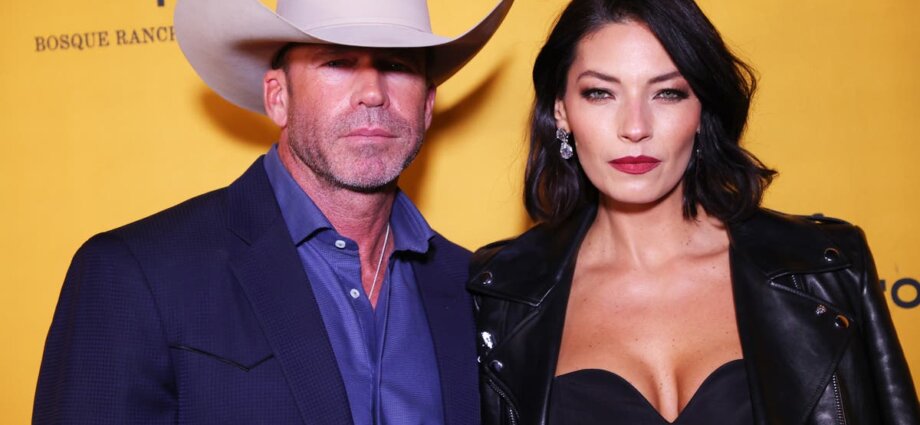The long-awaited return of Yellowstone’s fifth season isn’t even 28 minutes into the much-hyped newest episode before recurring character Travis Wheatley, a Lone Star cowboy and horse trader, mentions Weatherford, Texas. He’s on the phone with series star Rip, a cowboy soldier for the Dutton ranching family, who’s driven an equestrian trailer from Montana to the Lone Star State; within seconds, cameras pan out to show the vehicle turning into a majestic entryway of 6666 Ranch.
Wheatley, who first turned up in the fifth episode of the Paramount hit’s inaugural season, is played by Taylor Sheridan, the writer/director/actor behind the juggernaut series, its many spinoffs and an exponentially growing list of projects. Sheridan owns a ranch in Weatherford in real life. He also owns the Four Sixes, a legendary Texas property which he’d written into the show and partly based it on even before buying the 266,000-acre ranch.
But that’s not all. Sheridan’s character quickly name-drops Kory Pounds, a real-life champion horse cutter who, in addition to making a cameo in Yellowstone, recently rode a horse from Sheridan’s Bosque Ranch in an October competition held at the Weatherford property. The ranch produces Bosque Beef, and cinematic-quality commercials have cropped up advertising 6666 Beef, hailing from one of the largest and most iconic ranches in the country – which now dedicates an entire page of its website to a 2020 interview Sheridan gave to Cowboys & Indians magazine.
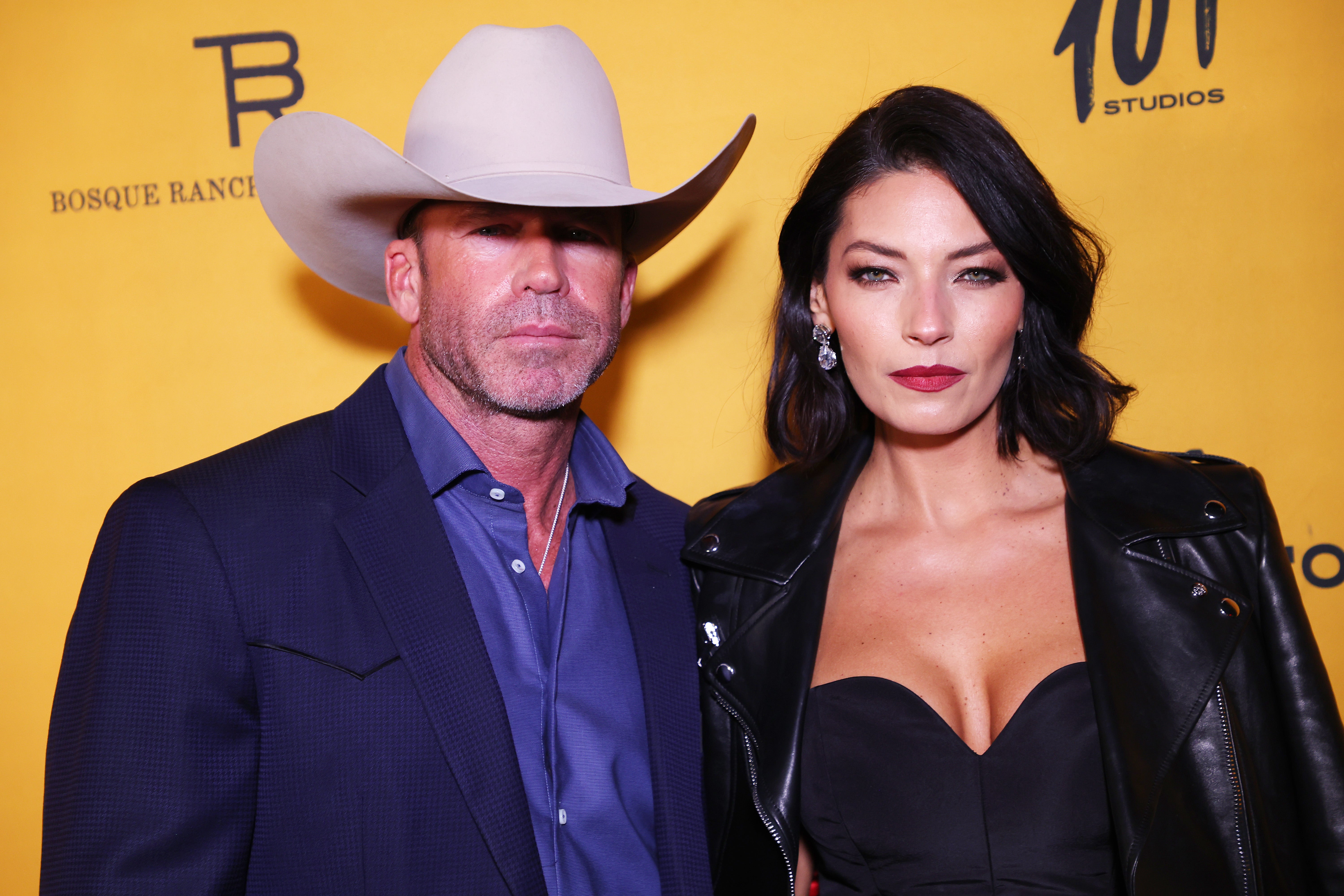
The 55-year-old native Texan not only exerts oversized influence on the franchise he birthed, but he’s also managed to infiltrate the entertainment landscape and permeate American in an almost unparalleled way. In addition to Yellowstone, Sheridan and his production company – named for Bosque County – are behind an avalanche of series; chances are you’ve watched one without knowing it. 1883. 1923. Special Ops: Lioness. Tulsa King. Mayor of Kingstown. Lawmen: Bass Reeves. The Last Cowboy. Landman, which premieres this weekend.
The runaway success of Sheridan’s shows has paralleled the explosion of cowboy across the US alongside a rise in American-style popular conservatism; one need only look at two Trump presidencies for supporting evidence. Sheridan’s schtick and personal brand relentlessly promote related frontier values: Single-mindedness, self-reliance and what many would call stubbornness – coupled with a generous helping of haughty self-assurance.
“I found my success in three distinct arenas: the movie business, the cattle business and the restaurant business, three industries any of the esteemed entrepreneurs in this room will tell you to vigorously avoid,” he said this week during a ceremony inducting him into the Texas Business Hall of Fame – three years after his induction into the Texas Cowboy Hall of Fame.
“Success came in the movie business by applying something that is completely nonexistent in Los Angeles, and that is logic,” Sheridan said this week. “I wish it was more complicated than that, but in the land of the blind, the one-eyed man is king.
“Yay, me.”

That’s some serious cowboy confidence from a former theater kid who grew up in Fort Worth, the son of a well-respected cardiologist – where he was then known by his birth name, Taylor Gibler.
He was born in July 1970 to Susan and Dr Sheridan Taylor Gibler, whose 2022 obituary is written with such narrative panache that it’s not a stretch to think his writer son penned it.

Watch Apple TV+ free for 7 days
New subscribers only. £8.99/mo. after free trial. Plan auto-renews until cancelled
Gibler “collected guns, knives, and limited-edition fountain pens and was known for his erudition, prodigious memory, and dry wit,” the obit reads. “He often tempered his learning with such Texas color as the phrase ‘too stupid to pour warm piss out of a boot’.”
(A version of that saying makes it into the dialogue of Yellowstone’s season two, uttered by fan favourite and veteran cowboy Lloyd as an insult in all his sage, wise-cracking and mustachioed glory.)
Sheridan’s mother hailed from Waco and loved spending time during childhood at her grandparents’ nearby ranch; she told Texas Highwaysthat she wanted her children to “have an opportunity to learn firsthand about the peaceful feeling of freedom in nature.” The Giblers purchased their own ranch in 1978 about 85 miles south of Fort Worth in tiny Cranfills Gap, spending most weekends at the property throughout Sheridan’s youth.
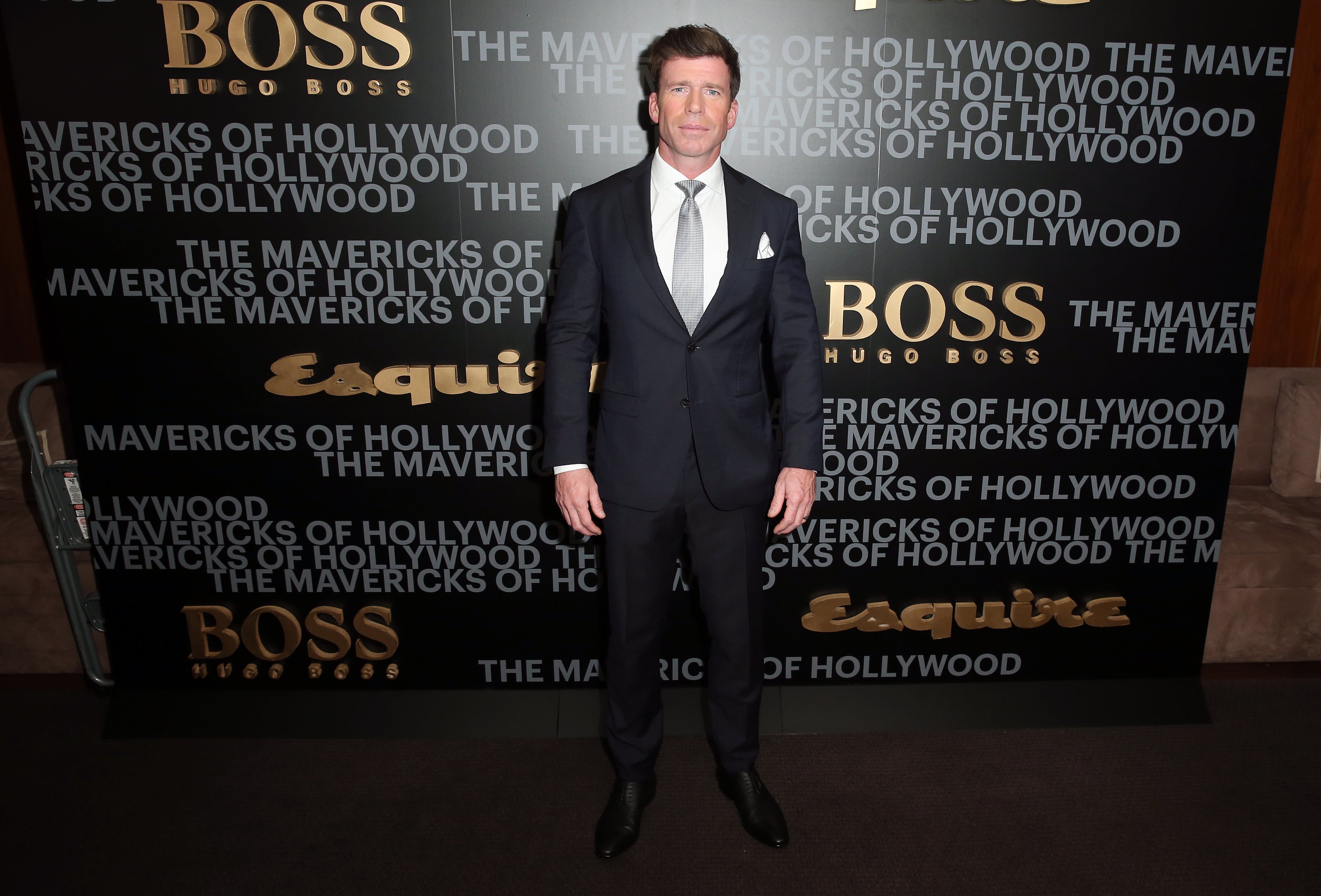
“We didn’t depend on our ranch for income,” Sheridan told the magazine, claiming that his first job at 14 was working on a nearby cattle ranch for $400 a month and a bunk. “But it’s where I learned to become a cowboy.”
Cranfills Gap back then, he said, “had a hardware store, a grocery store, a feed store, and a fillin’ station – and that’s about it. We were pretty isolated on the ranch. We’d get excited when the propane man would come to fill the tank.”
Sheridan grew up romanticizing that ranch and the wrangling lifestyle, absorbing it all through the eyes of a future storyteller simultaneously nurturing an acting career. The ranch was a refuge away from daily life; back in Fort Worth, Sheridan played Kenickie in Grease at Paschal High School and treaded the boards of the city’s Stage West Theatre at 16, he told the magazine.
When he graduated from Paschal High, he enrolled at Texas State University at San Marcos but dropped out, moving to Austin where he found work “mowing lawns and painting houses and trying to figure out what to do,” he told the Austin American-Statesman in 2017.
He was also grappling with the loss of his beloved family ranch, which his mother sold in 1991 following his parents’ divorce.
“I don’t think Taylor spoke to me for a year,” she told Texas Highways – with Sheridan’s cousin, McLennan County Sheriff Parnell McNamara, adding that the writer “was just born for that ranch.
“He was really upset when his mom sold it.”
It wasn’t long before Sheridan left not only ranching but Texas behind, though, to pursue his other passion: performance. He told the Statesman he was approached in an Austin mall by a talent scout who invited him to Chicago, and that led to a move to LA.
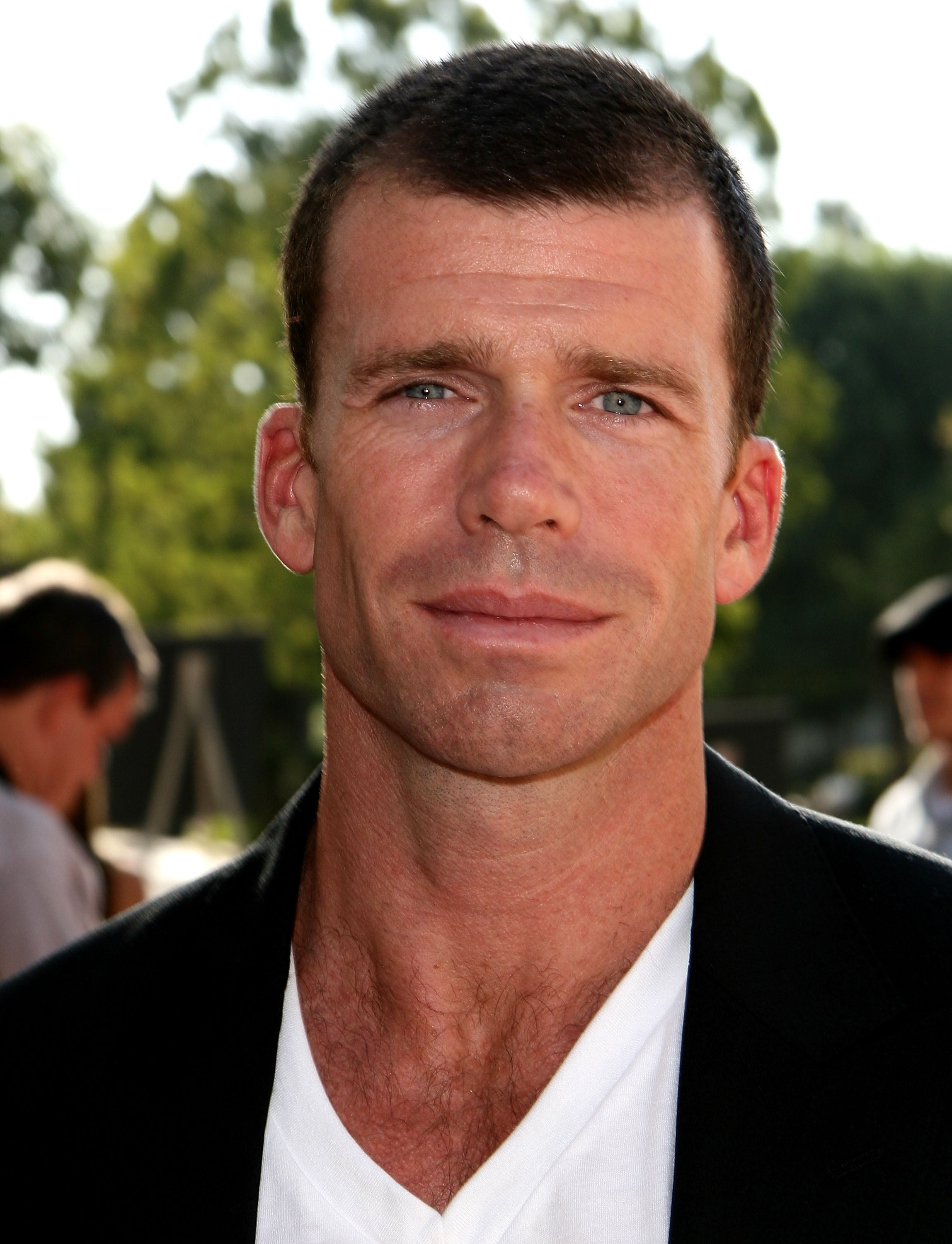
“I was a fair actor, but that’s all I was ever going to be,” Sheridan told The Hollywood Reporter last year; he won roles in Veronica Mars and Sons of Anarchy, but he wasn’t exactly raking in the big bucks and began acting coaching on the side.
It was coaching that brought him into the orbit of Nicole Muirbrook, a model and actress who’d appeared on shows like How I Met Your Mother but shared his love for all things Western – growing up in Utah and enjoying family time on her grandparents’ ranch in Wyoming.
The pair began dating, fell in love, moved together to the San Fernando Valley and welcomed a son, Gus. They married in 2013.
“At the time it was like ‘let’s just make enough to pay a mortgage or rent or food.’ We were literally starving,” Nicole told Cowgirl Magazine in 2021. “That’s when Taylor started writing, and two years later, we were at the Oscars … I still can’t believe it.”
Sheridan says that “Hollywood will tell you what you’re supposed to do if you listen”.
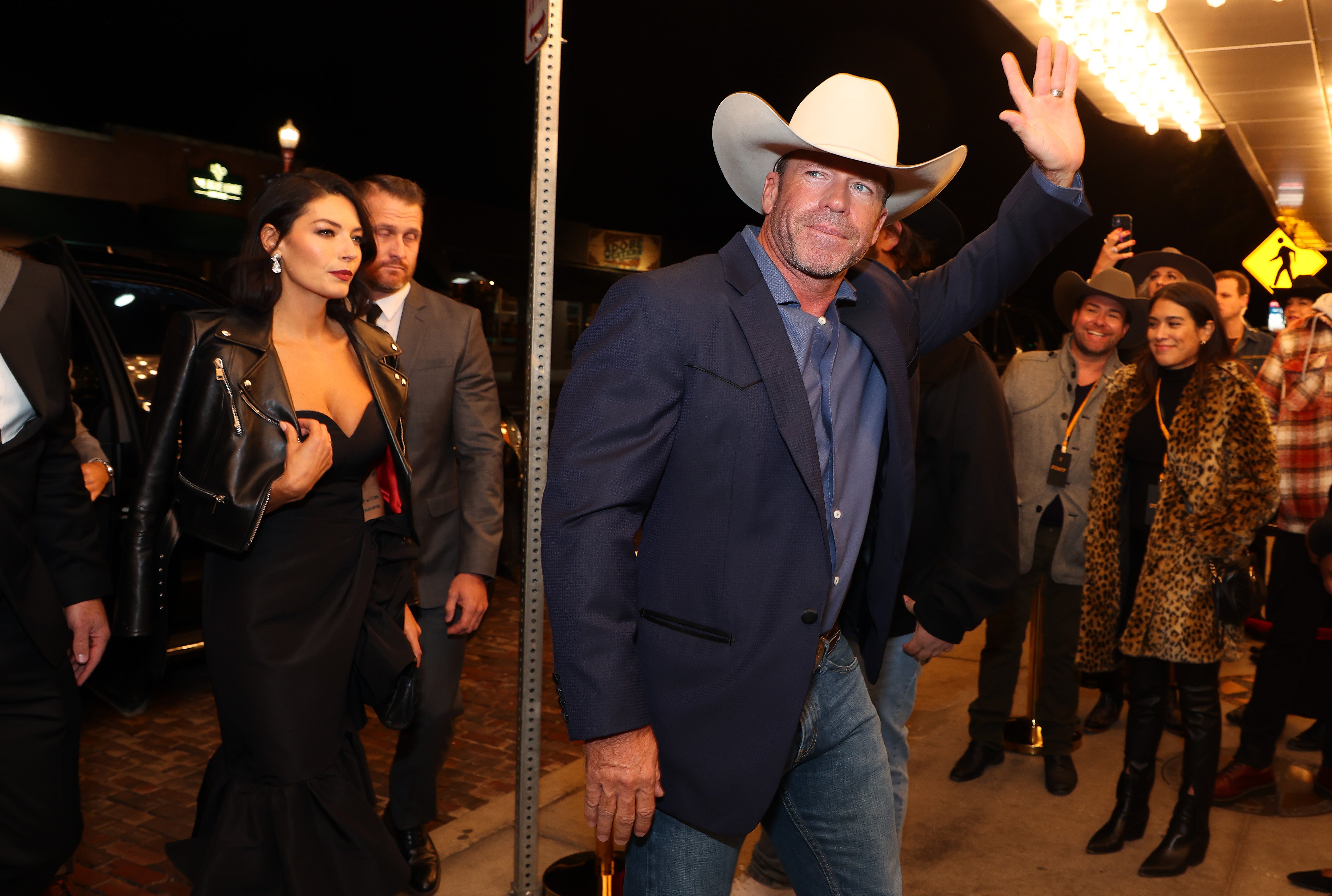
“If you’re banging your head against the wall for 20 years trying to be an actor, maybe you shouldn’t be an actor,” he told THR. “But the first thing I ever wrote [the pilot for Mayor of Kingstown in 2011] got me meetings at every major network, at every agency. I had multiple people trying to buy it.”
Mayor of Kingstown didn’t get made until a decade later, but Sheridan’s screenwriting status was taking off – fast. His 2015 film Sicario was a runaway hit, followed by 2016’s Hell or High Water and Wind River the following year.
It was television and the 2018 premiere of Yellowstone, however, that would truly bring Sheridan’s work and ethos into American households and the country’s wider psyche (though Sheridan professed in 2020 that he didn’t ‘know the first thing about television’ and, ‘as far as [he’s] concerned,’ he is ‘shooting a 70-hour movie in one-hour increments. I approach it like that, and Paramount lets me.’)
“I think the thing that really changed my perspective on my career was getting married and having a child,” Sheridan told Cowboys & Indians. He and his wife, who lived together for a time in Wyoming before relocating to Texas in the wake of his success, notably tend to give the most in-depth interviews to niche Western publications, further bolstering that true-to-your-roots, spurs-and-boots brand. “And then, really thinking about how I am going to raise that child. And if that child is going to look up to me, what is he looking up to me for?
“It made me reflect on my career very deeply,” he said. “Also, I wanted to tell stories that mattered to me, and not tell other people’s stories. I wanted to tell stories about my life and the lifestyle that I grew up in, and the world that I come from, and understand the value of the upbringing that I had. That’s why I quit acting. That’s when I started telling those stories that I felt mattered to me.”
He’s also notoriously committed to retaining control over all of that storytelling; “For me, writers rooms, they haven’t worked out,” he told THR.
“I spent the first 37 years of my life compromising,” Sheridan said. “When I quit acting, I decided that I am going to tell my stories my way, period. If you don’t want me to tell them, fine. Give them back and I’ll find someone who does — or I won’t, and then I’ll read them in some freaking dinner theater. But I won’t compromise. There is no compromising.”
It’s not hard to imagine, with that glimpse into Sheridan’s attitude, how Paramount ended up paying the showrunner $50,000 a week to film his own series at his Texas property and $25 a head to rent his cattle, according to Wall Street Journal figures.
In addition to building his own brand and empire, however, Sheridan still seems enamored by idealistic boyhood notions of Lone Star life and cowboy – with perhaps no further evidence needed than his involvement with the Four Sixes.
“When you think of the best cowboys and horses, you think of the Four Sixes,” Sheridan told Fort Worth magazine in 2022 of the massive famed property, noting that he “wanted to tell a story of an actual working ranch and not just dramatize it.”
Sheridan in 2019 convinced its octogenarian owner, Anne Marion – whose family had helmed the operation for generations – to allow him to incorporate the ranch and its real-life name into Yellowstone; months later, Marion died and Sheridan received a call from the estate about buying the Four Sixes, THR reported.
The price was $350m.
So Sheridan, who’d previously claimed he wanted to retire young, signed a new contract reportedly worth $200m and wrangled not horses but investors. In February 2022, his wife posted a photo of the family of three standing on the front steps of the main Four Sixes residence, captioning it: “Honoring and preserving a true western legacy. #home” – alongside “6666” between two heart emojis.
Sheridan seems single-mindedly determined to not only increase awareness of the ranching world but also to – as his wife wrote – preserve it.
“I would pinch myself if I wasn’t keenly aware of the tremendous amount of responsibility that I just took on,” he told Fort Worth magazine. “It’s 150 years of legacy building at Four Sixes.”
He’s inarguably building his own legacy at the same time;Cowgirl Magazine, in its profile of Sheridan’s wife, notes how the couple’s Weatherford property includes swanky Nic’s Bar – “designed by the Sheridans to represent their own personal brand … with bright neon signage of their successful television ventures crowned by the eponymous neon title sign, Nic’s.”
In addition to his production company, two beef brands and ranches, Sheridan’s multi-vertical endeavours also include a coffee business – leading to further reports of his … prickliness. He filed suit last year against Yellowstone star Cole Hauser – funnily enough, the same actor his Yellowstone character is on the phone with in the most recent episode – in a dispute about their competing coffee company logos; it was later dismissed.
Sheridan has been accused, among other things, of having a “God complex” – and his responses to such criticism have not exactly helped combat it.
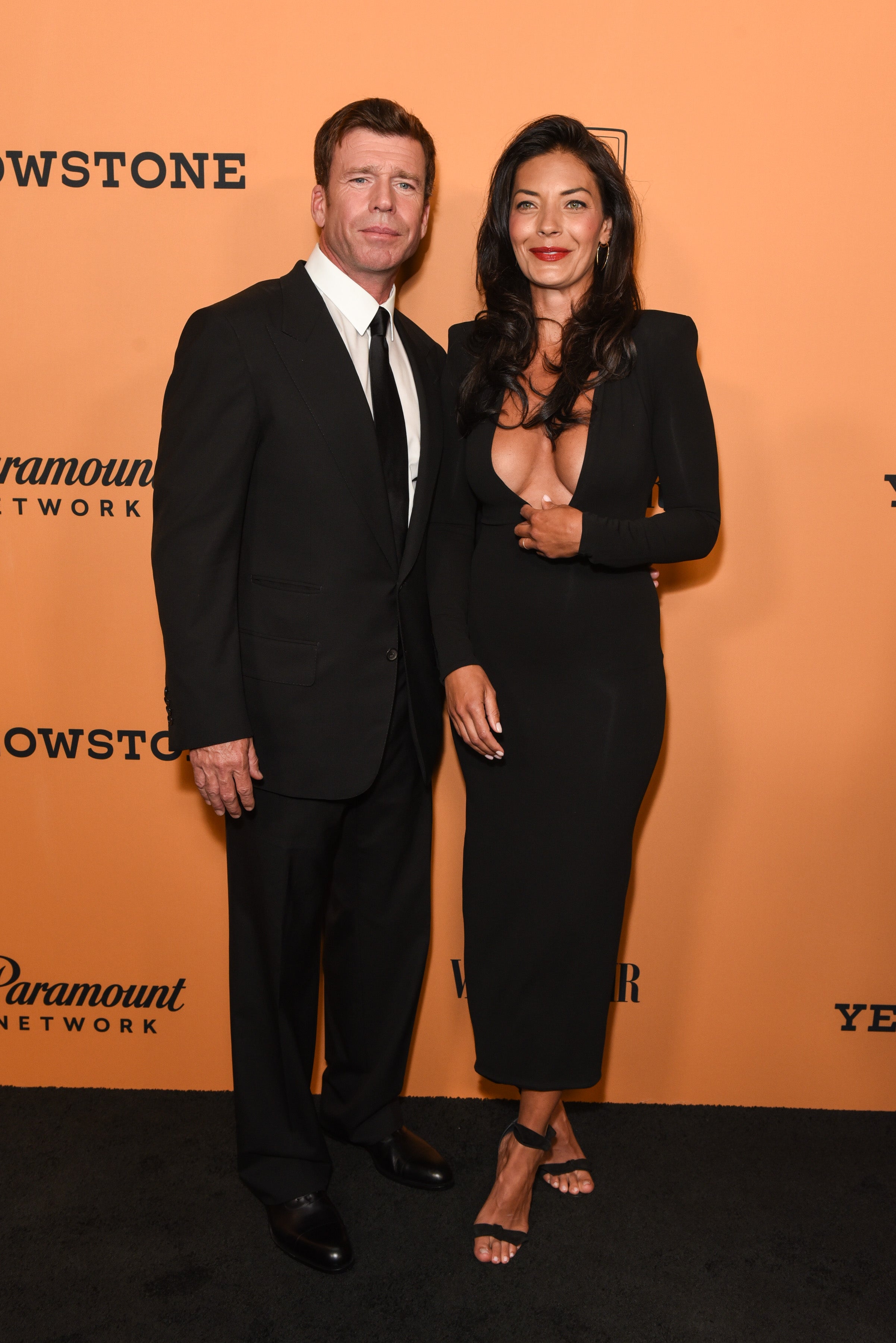
Boasting about “parking 20 million people in front of a television” and “beating NFL Sunday Night Football routinely,” the writer huffed: “My one rule with line producers and production people is: You don’t get to tell me ‘no,’ you get to tell me how much ‘yes’ costs, and then I decide where to pull that money from.
“It’s easy to tell me, ‘Taylor, you cannot have a helicopter for two days.’ That’s not the deal. I’m going to get a helicopter for two days. I’m going to swap this location to over here, and then I’m going to shoot this here, and I’ll squeeze this out there, and then it will end up costing the same amount of money. So if you want to call that a God complex, great.”
This week, as Sheridan told Texas business leaders that “the one-eyed man is king,” he added that he “achieved all this with a paycheck from a bunch of Hollywood vegans.”
He was keenly aware of his audience, who responded with appropriate appreciation; he’s also keenly aware that his meteoric rise and expanding empire are beginning to mirror some of the power players in his shows.
“LIfe imitating art was never my intention,” he told THR last year – instead joking that “the plan was always to become a big movie star, then move back to a ranch and just do movies with Martin Scorsese when I felt like it”.
He may be closer to that original goal than he ever imagined – and closer to the shrewd magnate protagonists that he’s dreamt up.
“The real impetus behind Yellowstone was always that if you’re the owner of an amount of land that vast, you’re kind of a king, and morality doesn’t apply,” he told THR.
“I was surprised by the amount of political influence that we have [with the ranch]. I don’t know why I was surprised — I wrote it into Yellowstone. But what we do or don’t do can influence a market. So even though I wrote about John Dutton having that kind of influence, I never really fathomed myself having it.”











